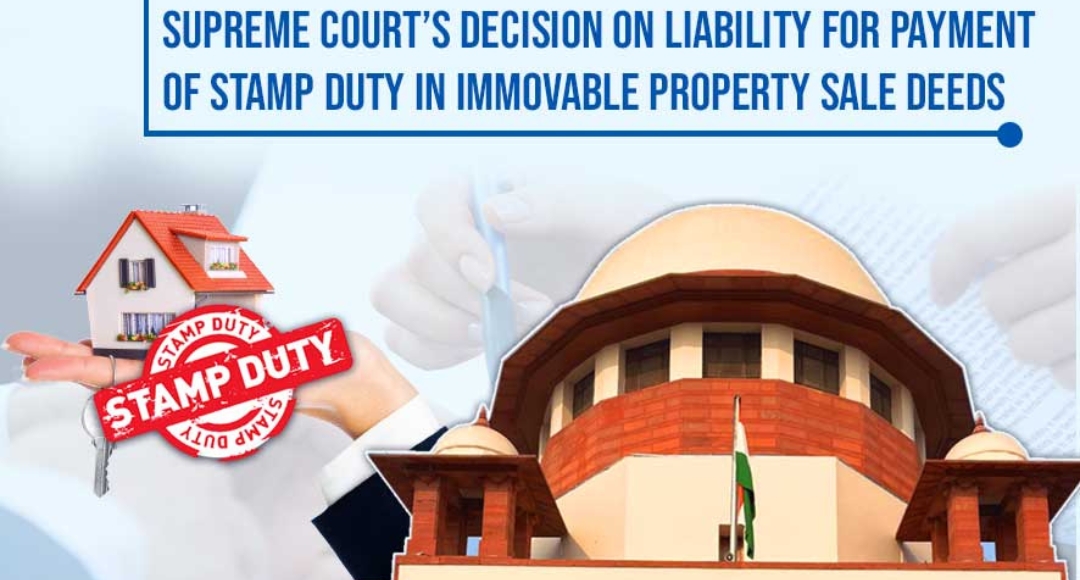Hello friends, Have you ever thought about the process of buying or selling a property? Often we understand that stamp duty applies only to the sale deed, but the Supreme Court has recently given an important decision, which has made it clear that if possession of the property is given in the Agreement to Sell, then it will be considered as ‘Conveyance’ and stamp duty will be levied on it. Let us understand this decision in simple language.
Stamp duty will be levied on the Agreement to Sell?

The Supreme Court bench, consisting of Justices J.B. Pardiwala and R. Mahadevan, heard a case related to the Bombay Stamp Act. In this case, the appellant claimed that there was an ‘Agreement to Sell’ on the property in which he was living as a tenant, but ownership rights would be given only when the sale deed was ready. But the court rejected this argument. Justice Mahadevan said that if the agreement to sell mentions possession, then it comes under the definition of ‘conveyance’ and it will be kept under the purview of stamp duty. In this decision, it was said that even if the person is already a tenant, if the agreement promises to give him ownership rights in future, then stamp duty will be levied on it.
What does the court’s decision mean?
This decision means that now if a person makes an agreement to sell a property and there is a mention of possession in it, then considering it as a “contract to sell”, stamp duty will have to be paid. Earlier it was a common belief that stamp duty has to be paid only on the final sale deed. In this case, the Supreme Court cited the cases of Veena Hasmukh Jain vs State of Maharashtra (1999) and Shyamsunder Radheshyam Agarwal vs Pushpabai Neelkanth Patil, in which the same principle was applied that if there is a provision for giving possession in an agreement, then it will be considered a ‘conveyance’ and stamp duty will be levied, whether possession is given before, after or at the same time as the agreement.
Will this affect property buyers?

If you are planning to buy a property and are thinking that there will be no stamp duty on the agreement to sell, then this decision can affect you. Now buyers have to ensure that they also take care of the stamp duty levied during the agreement. This decision is also important for cases where people plan to live as tenants and later take ownership. Now the stamp duty liability will be fixed in such cases. This decision of the Supreme Court can bring a big change in the real estate sector. This makes it clear that any agreement related to property, which has a condition of giving possession, will be considered a ‘conveyance’ and will have to pay stamp duty on it. This decision is also an important step to increase transparency and prevent tax evasion.
Disclaimer: This article is written for informational purposes only. If you are planning to buy or sell property, it is necessary to consult a legal expert or stamp duty consultant.
Also Read:
Understanding the Law of Torts Bare Act: A Complete Guide
Comprehensive Law of Torts Notes: Key Principles and Case Studies






